- Home
- Categories
- Non Fiction
- Innovation and Technology
- The Atomic Human - Understanding Ourselves in the Age of AI
The Atomic Human - Understanding Ourselves in the Age of AI
By: Neil D. Lawrence
-
Rs 5,665.50
- Rs 6,295.00
- 10%
You save Rs 629.50.
Due to constant currency fluctuation, prices are subject to change with or without notice.
What does Artificial Intelligence mean for our identity? Our fascination with AI stems from the perceived uniqueness of human intelligence. We believe it's what differentiates us. Fears of AI not only concern how it invades our digital lives, but also the implied threat of an intelligence that displaces us from our position at the centre of the world.
Neil D. Lawrence's visionary book shows why these fears may be misplaced. Atomism, proposed by Democritus, suggested it was impossible to continue dividing matter down into ever smaller components: eventually we reach a point where a cut cannot be made (the Greek for uncuttable is 'atom'). In the same way, by slicing away at the facets of human intelligence that can be replaced by machines, AI uncovers what is left: an indivisible core that is the essence of humanity.
Human intelligence has evolved across hundreds of thousands of years. Due to our physical and cognitive constraints over that time, it is social and highly embodied. By contrasting our capabilities with machine intelligence, The Atomic Human reveals the technical origins, capabilities and limitations of AI systems, and how they should be wielded. Not just by the experts, but ordinary people. Understanding this will enable readers to choose the future we want – either one where AI is a tool for us, or where we become a tool of AI – and how to counteract the digital oligarchy to maintain the fabric of an open, fair and democratic society.
What does Artificial Intelligence mean for our identity? Our fascination with AI stems from the perceived uniqueness of human intelligence. We believe it's what differentiates us. Fears of AI not only concern how it invades our digital lives, but also the implied threat of an intelligence that displaces us from our position at the centre of the world.
Neil D. Lawrence's visionary book shows why these fears may be misplaced. Atomism, proposed by Democritus, suggested it was impossible to continue dividing matter down into ever smaller components: eventually we reach a point where a cut cannot be made (the Greek for uncuttable is 'atom'). In the same way, by slicing away at the facets of human intelligence that can be replaced by machines, AI uncovers what is left: an indivisible core that is the essence of humanity.
Human intelligence has evolved across hundreds of thousands of years. Due to our physical and cognitive constraints over that time, it is social and highly embodied. By contrasting our capabilities with machine intelligence, The Atomic Human reveals the technical origins, capabilities and limitations of AI systems, and how they should be wielded. Not just by the experts, but ordinary people. Understanding this will enable readers to choose the future we want – either one where AI is a tool for us, or where we become a tool of AI – and how to counteract the digital oligarchy to maintain the fabric of an open, fair and democratic society.
The Atomic Human - Understanding Ourselves in the Age of AI
By: Neil D. Lawrence
Rs 5,665.50 Rs 6,295.00 Ex Tax :Rs 5,665.50
Zubin Mehta: A Musical Journey (An Authorized Biography)
By: VOID - Bakhtiar K. Dadabhoy
Rs 892.50 Rs 1,050.00 Ex Tax :Rs 892.50
Prisoners of Geography - Ten Maps That Tell You Everything You Need to Know about Global Politics
By: Tim Marshall
Rs 6,745.50 Rs 7,495.00 Ex Tax :Rs 6,745.50
The Origins of Political Order From Prehuman Times to the French RevolutioN
By: Francis Fukuyama
Rs 4,045.50 Rs 4,495.00 Ex Tax :Rs 4,045.50
Manning Up: How the Rise of Women Has Turned Men into Boys
By: Kay Hymowitz
Rs 845.75 Rs 995.00 Ex Tax :Rs 845.75
The Obama Syndrome: Surrender At Home War Abroad
By: Tariq Ali
Rs 1,100.75 Rs 1,295.00 Ex Tax :Rs 1,100.75
The Quest For Meaning: Developing A Philosophy Of Pluralism
By: Tariq Ramadan
Rs 1,185.75 Rs 1,395.00 Ex Tax :Rs 1,185.75
Prisoners of Geography - Ten Maps That Tell You Everything You Need to Know about Global Politics
By: Tim Marshall
Rs 6,745.50 Rs 7,495.00 Ex Tax :Rs 6,745.50
Letters for the Ages Winston Churchill
By: Sir Sir Winston S. Churchill
Rs 4,195.00 Ex Tax :Rs 4,195.00
2024 Astrology Diary - Northern Hemisphere
By: Patsy Bennett
Rs 2,035.75 Rs 2,395.00 Ex Tax :Rs 2,035.75
Stranger Things: Heroes and Monsters (Choose Your Own Adventure)
By: Random House
Rs 2,205.75 Rs 2,595.00 Ex Tax :Rs 2,205.75
Cocomelon: Let's Meet the Doctor Picture Book
By: Cocomelon
Rs 1,435.50 Rs 1,595.00 Ex Tax :Rs 1,435.50
The "I Love My Air Fryer" 5-Ingredient Recipe Book
By: Robin Fields
Rs 3,650.75 Rs 4,295.00 Ex Tax :Rs 3,650.75
Pop Manga Drawing - 30 Step-by-Step Lessons for Pencil Drawing in the Pop Surrealism Style
By: Camilla d Errico
Rs 2,965.50 Rs 3,295.00 Ex Tax :Rs 2,965.50
Sign with Blue! (Blue's Clues & You) - An Introduction to Sign Language
By: Random House
Rs 1,345.50 Rs 1,495.00 Ex Tax :Rs 1,345.50
Five Fall Into Adventure: Book 9 (Famous Five) - Paperback
By: Enid Blyton
Rs 1,795.50 Rs 1,995.00 Ex Tax :Rs 1,795.50
Care Bears: Hearts 'N' Hugs Sticker Activity Book
By: Care Bears
Rs 420.75 Rs 495.00 Ex Tax :Rs 420.75
The Adventures of Chee and Dae in Cloomoon
By: Saniya Chughtai
Rs 2,245.50 Rs 2,495.00 Ex Tax :Rs 2,245.50
ART OF WORLDLY WISDOM - Classic Advice on how to Live Well
By: Baltasar Gracián
Rs 1,615.50 Rs 1,795.00 Ex Tax :Rs 1,615.50
Einstein His Life and Universe - (PB)
By: Walter Isaacson
Rs 2,695.50 Rs 2,995.00 Ex Tax :Rs 2,695.50
Really Tiny Book Light Purple
By: That Company Called IF
Rs 2,245.50 Rs 2,495.00 Ex Tax :Rs 2,245.50
A Great Clamour Encounters with China and Its Neighbours
By: Pankaj Mishra
Rs 807.50 Rs 950.00 Ex Tax :Rs 807.50
Builder's Tool Kit (Let's Pretend Sets)
By: Roger Priddy
Rs 3,325.50 Rs 3,695.00 Ex Tax :Rs 3,325.50
The Spaces in Between - Finding the Little Mindful Moments in the City
By: Jaspreet kaur
Rs 2,545.75 Rs 2,995.00 Ex Tax :Rs 2,545.75
Really Tiny Booklight Tiny Pink
By: That Company Called IF
Rs 2,245.50 Rs 2,495.00 Ex Tax :Rs 2,245.50
100 Ways to Take Better Landscape Photographs
By: Guy Edwardes
Rs 300.00 Rs 600.00 Ex Tax :Rs 300.00
Hairy Maclary, Sit (hairy Maclary And Friends)
By: Lynley Dodd
Rs 797.50 Rs 1,595.00 Ex Tax :Rs 797.50
Really Tiny Booklight Tiny Blue
By: That Company Called IF
Rs 2,245.50 Rs 2,495.00 Ex Tax :Rs 2,245.50
Where's Wally? The Great Speed Search
By: Martin Handford
Rs 2,965.50 Rs 3,295.00 Ex Tax :Rs 2,965.50
Dr. Seuss: The Cat in the Hat Coloring & Activity Book - Coloring and Activity Book with Rainbow Pencil
By: Random House
Rs 1,705.50 Rs 1,895.00 Ex Tax :Rs 1,705.50
Dr. Seuss: Green Eggs and Ham Painting Book - Coloring and Activity Book with Paint Box
By: Random House
Rs 1,705.50 Rs 1,895.00 Ex Tax :Rs 1,705.50
Star Wars Folded Flyers Make 30 Paper Starfighters
By: Benjamin Harper
Rs 1,695.75 Rs 1,995.00 Ex Tax :Rs 1,695.75
Well Played - The Addictive and Feel-Good Willow Creek TikTok Romance
By: Jen DeLuca
Rs 1,440.75 Rs 1,695.00 Ex Tax :Rs 1,440.75
Third Times a Charm Making Friends Book 3
By: Kristen Gudsnuk
Rs 2,515.50 Rs 2,795.00 Ex Tax :Rs 2,515.50
The Life of the Prophet Muhammad A Sirah Source Book for Children -
By: Leila Azzam
Rs 432.00 Rs 540.00 Ex Tax :Rs 432.00
Three Centuries of Travel Writing by Muslim Women
By: Siobhan Lambert-Hurley
Rs 16,915.50 Rs 18,795.00 Ex Tax :Rs 16,915.50
Dragon Ball Super, Vol. 17: Volume 17
By: Akira Toriyama
Rs 2,515.50 Rs 2,795.00 Ex Tax :Rs 2,515.50
The Wisdom Journal he Companion to the Wisdom of Sundays by Oprah Winfrey
By: Oprah Winfrey
Rs 2,335.50 Rs 2,595.00 Ex Tax :Rs 2,335.50
Romeo and Juliet (Macmillan Collectors Library) Hardcover
By: William Shakespeare
Rs 2,245.50 Rs 2,495.00 Ex Tax :Rs 2,245.50
The Gift of Rumi - Experiencing the Wisdom of the Sufi Master
By: Emily Jane O Dell
Rs 3,055.50 Rs 3,395.00 Ex Tax :Rs 3,055.50
The Wrath and the Dawn: The Wrath and the Dawn Book 1
By: Renee Ahdieh
Rs 1,975.50 Rs 2,195.00 Ex Tax :Rs 1,975.50
The Road to Unfreedom - Russia, Europe, America
By: Timothy Snyder
Rs 2,205.75 Rs 2,595.00 Ex Tax :Rs 2,205.75
The Palace Papers - Inside the House of Windsor, the Truth and the Turmoil
By: Tina Brown
Rs 2,497.50 Rs 4,995.00 Ex Tax :Rs 2,497.50
To Kill the President: The most explosive thriller of the year
By: Sam Bourne
Rs 1,440.75 Rs 1,695.00 Ex Tax :Rs 1,440.75
Witchshadow (The Witchlands Series, 4)
By: Susan Dennard
Rs 1,780.75 Rs 2,095.00 Ex Tax :Rs 1,780.75
Zubin Mehta: A Musical Journey (An Authorized Biography)
By: VOID - Bakhtiar K. Dadabhoy
Rs 892.50 Rs 1,050.00 Ex Tax :Rs 892.50
The Atomic Human - Understanding Ourselves in the Age of AI
By: Neil D. Lawrence
Rs 5,665.50 Rs 6,295.00 Ex Tax :Rs 5,665.50
Prisoners of Geography - Ten Maps That Tell You Everything You Need to Know about Global Politics
By: Tim Marshall
Rs 6,745.50 Rs 7,495.00 Ex Tax :Rs 6,745.50














-120x187.jpg?q6)





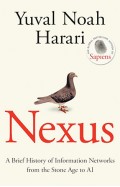

-120x187.jpg?q6)

















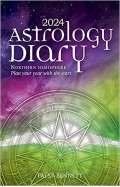















-Paperback-120x187.jpg?q6)







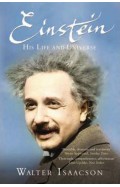










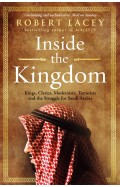








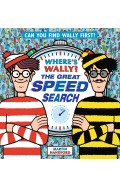
-120x187.jpg?q6)

















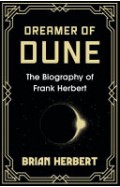















-Hardcover-120x187.jpg?q6)



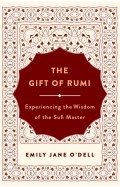






-120x187.jpg?q6)